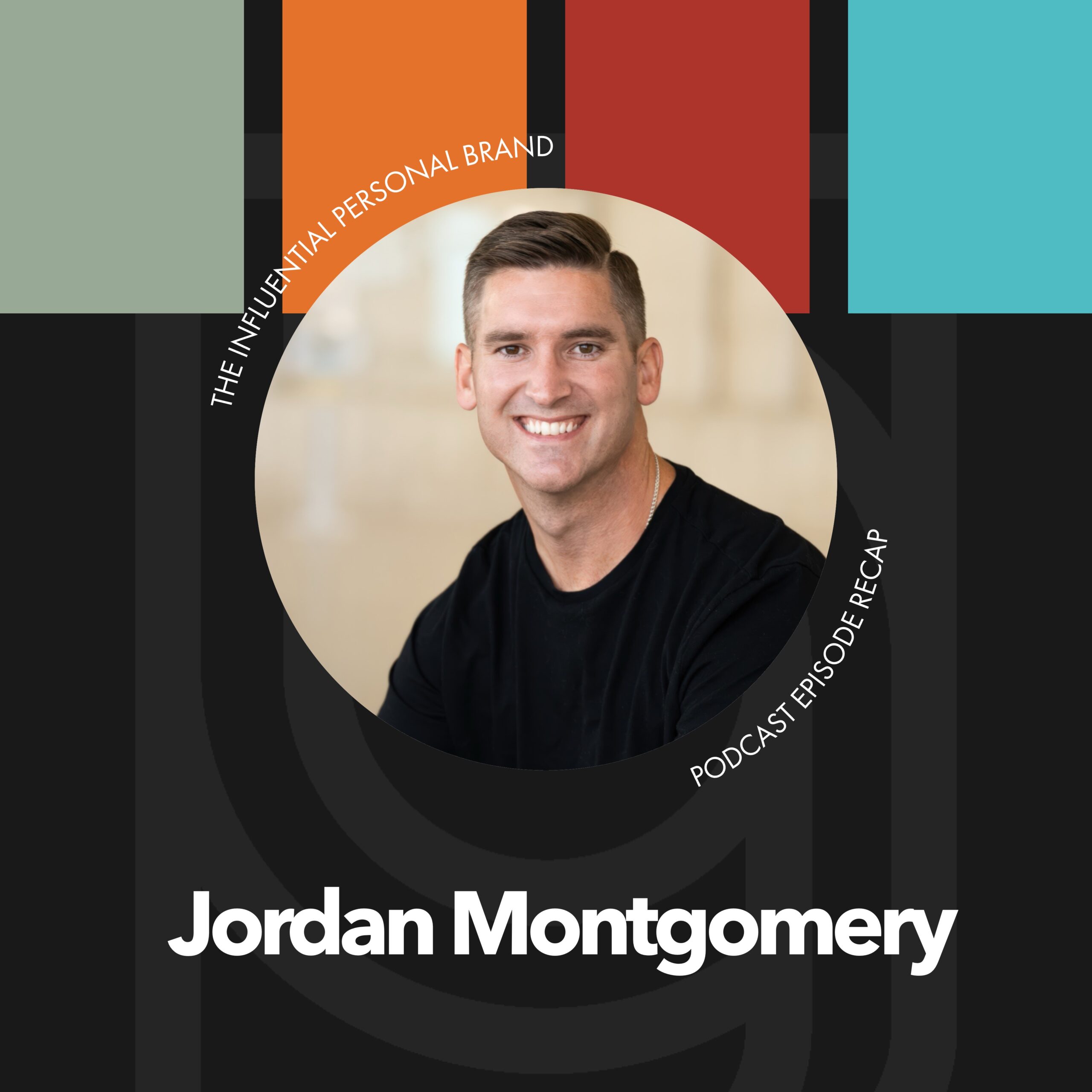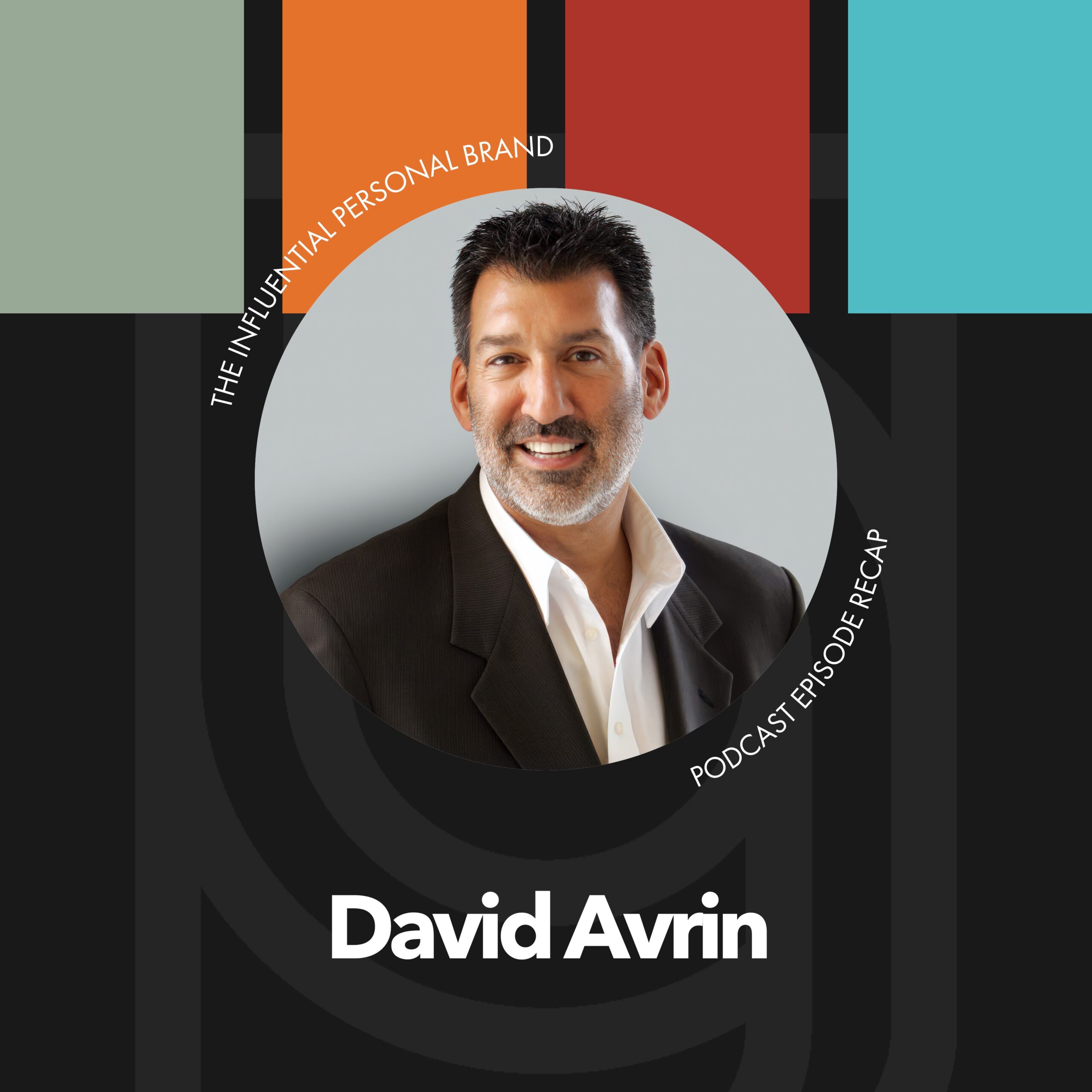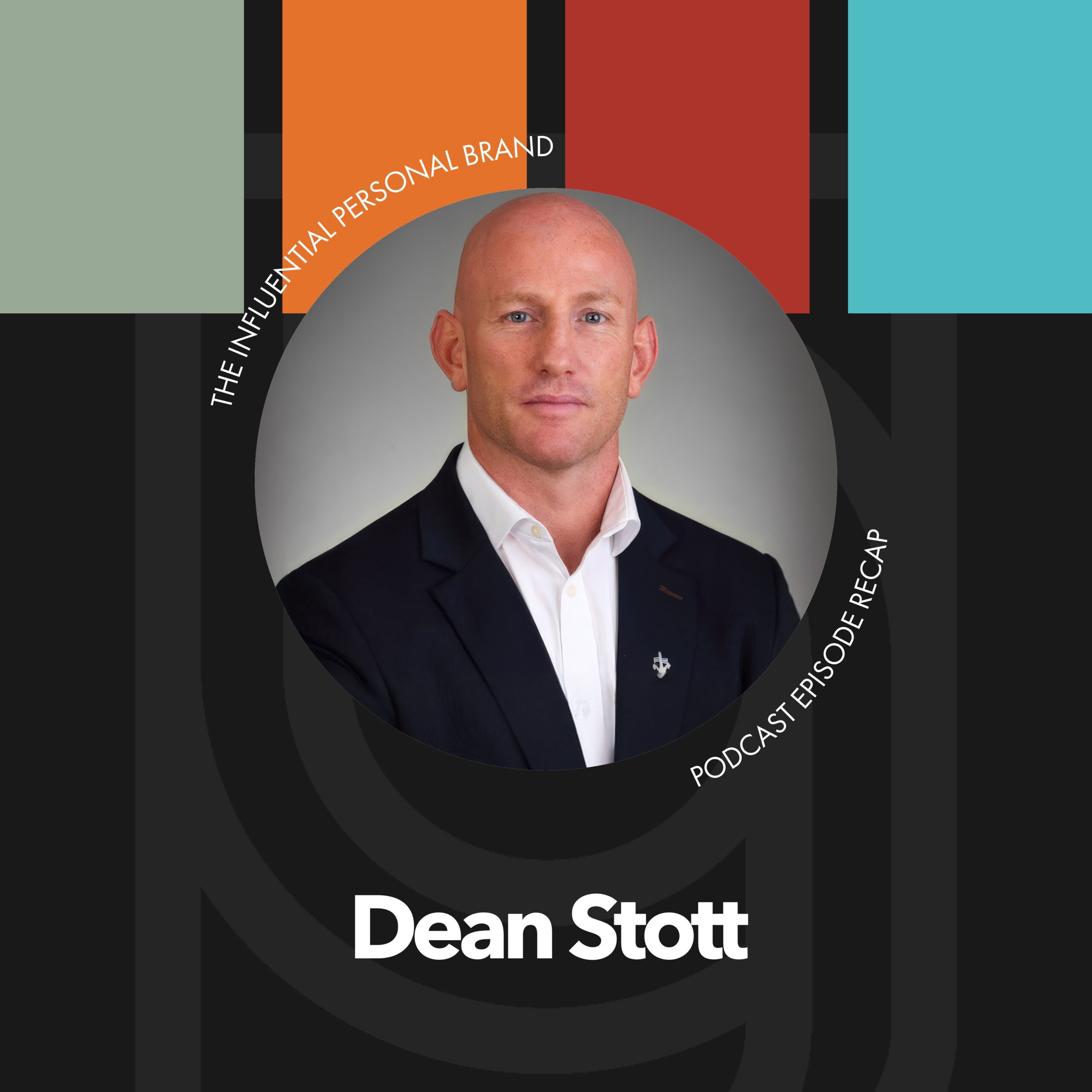RV (00:07):
Hey brand builder, Rory Vaden here. Thank you so much for taking the time to check out this interview as always, it’s our honor to provide it to you for free and wanted to let you know there’s no big sales pitch or anything coming at the end. However, if you are someone who is looking to build and monetize your personal brand, we would love to talk to you and get to know you a little bit and hear about some of your dreams and visions and share with you a little bit about what we’re up to to see if we might be a fit. So if you’re interested in a free strategy call with someone from our team, we would love to hear from you. You can do that at brand builders, group.com/pod call brand builders, group.com/pod call. We hope to talk to you soon.
RV (00:54):
What is the fastest way to become a paid professional speaker? That was a big part of the topic of conversation. Of course, in this recent interview that I did with Kindra hall, who is a friend, a colleague, someone who I have now known for years, and it’s been delightful to see how her speaking career has taken shape. I met her when she first started out and I just love, I love seeing people who are winning and who set that, set a goal and create a vision and go out and knock it down. And so it’s great to reconnect with her and and bring some of this. Some of these highlights in education to you and not everybody wants to be a paid professional speaker. Now, if you are in, if you are one of our brand builders group messengers, if you’re in one or one of our clients, you know that we talk about presentations a lot, because we believe that presentations are both your best first product and your best first piece of marketing collateral.
RV (01:57):
We use presentations and speaking as the number one way to drive leads into your business. Now that doesn’t mean you have to be paid to speak. And it also doesn’t mean even that you have to do it on stages or even in person. A lot of times it happened through webinars and podcasts and social media lives and, you know, just little YouTube videos and things like that. But we believe in speaking, but this episode specific to the business of paid professional speaking and that is really a, a very specific thing. And so in our world, one of our, one of our courses is called full keynote calendar, which is where we teach the entire business. It’s the, the whole two day event. Or if you do it as a course, you know, or you do it at a private strategy session with us is completely dedicated specifically to the business of paid speaking, which is what the topic of this conversation was with Kindra.
RV (02:55):
So I wanna share with you a couple of my highlights and takeaways from Kindra and also share, you know, just add in some of our other tips that, that we know of from the, from just from spending a career doing this. So, first of all, one of the things that she said, which is incredible advice, it is completely true. I totally agree. And if you hang out around like the national speakers association or other kind of paid professional speakers a lot or aspiring speakers, you will hear this. This is, this is sort of age old wisdom. And in the, when it comes to the business of speaking, there may not be a better piece of tactical advice than this, which is speak at associations. That is where you start, you start your speaking, your paid professional speaking career, and, and unpaid, you can also do this for, for free speaking engagements for lead gen, right?
RV (03:50):
But you start by speaking at paid, sorry, not that start by speaking at associations. If you are wanting to build a career as a paid professional speaker, why? Okay. Because a few reasons. So first of all, think about it. Associations bring people together who all work for different companies. So associations exist entirely for the purpose of having meetings. That is, that is why they exist. It is, it is for the purpose of best practices and, and networking and creating community among a profession. So associations exist like solely to have meetings, to create encounters with people who are from different companies, but are inside of the same industry. That is why they exist. Now, anytime you have meetings, you need speakers. So that’s the second reason why is in order to incentivize these people to come together collectively, one of the best ways to do that is to provide education.
RV (05:00):
That is a VI that will, will benefit all of them, which means they need speakers. They need educators. They need people who can add content to their program, to their lineup, to create and enhance the value of that meeting, which is inherent and, and necessary and essential in getting people to even show up for the meeting in the first place. So they are desperate for speakers. They’re dependent on speakers. That’s very different from a company, right? Like a company, people are all there gathered every day in the same place. Anyways, they may or may not have a meeting. And if they’re having a rough year financially, one of the first things they probably cut is a meeting, but associations can’t cut the meeting like that is the association is getting people together and they gotta have speakers. So that’s the second reason why they are great.
RV (05:46):
The third reason why associations are great and why you should target speaking at associations first is because they typically don’t have a lot of money. . Now I know that might seem weird. You might say, okay, well, why would I go speak at associations if they don’t have any money? Well, first of all, they do have money, but they, they, they don’t always have a lot of money and you may not get your, you know, the fee that you wanna have one day. But the reason why it’s a good thing is it’s less competitive. That’s why it’s less competitive to get that gig. Not every association is, is non-competitive. Some of them are very, very competitive and some associations have lots of money. Like big associations can pay lots of big money, but generally speaking their nonprofit organizations. So they typically don’t, you know, have oodles and oodles of cash, just flowing around to, you know, dish out to, to, to pay some past president or, you know, some, some celebrity to come and speak.
RV (06:47):
So, so they, they run on a tighter budget, which means that it’s less competitive. Why? Because the higher paid speakers who are typically more established who are world renowned, who are the whatever bestselling authors, the, the, the, the, the people with lots of notoriety or followers or high profile executives, et cetera, they’re competing for higher paying gigs here at associations. Like a lot of times, you know, like these days, honestly, for me, I don’t speak at that many associations. Why, because my fee is outside the range of what most associations can pay. And I am getting as many speaking gigs as I desire to have. So you know, that’s an example. You’re not gonna compete against experienced speakers as much in the association market. So it’s a great place to get started. If you’re trying to speak at, you know, apple or Oracle or, or, you know, the million million dollar round table.
RV (07:45):
Now that’s a, that’s technically an association. That’s a huge one. It’s one of the most illustrious and famous in the world. That happens to be one I am speaking at, in a couple weeks, as a matter of fact in Australia. So there are, there are really, really huge ones that are very, very competitive, but, but the higher end ones have more competition. So when you’re just getting started, it’s good to go in places where you can get momentum and win. So that’s the third great reason to speak at associations. The fourth, great reason to speak at associations is because you are in front of a lot of potential prospects. You’re in front of a lot of potential prospects. I never get more spinoff opportunities than when I speak in front of an association. Why? Because every person in the audience is from a different company.
RV (08:35):
They’re from a different, you know, location, they’re from a different organization, which means all of them are potential people who could hire you compared to when you speak at a company, right? All of those employees work for the same company. So it’s less likely that somebody there is gonna say, Hey, come let me hire you to speak for this other company, because they all work at the same company. Now we’ll talk about that in a second and how to, how to make that work for you really well. But those are four great reasons to speak at associations. And then the fifth reason to speak at associations is because they are easy to find because they’re easy to find. You can just go search association in any industry. And it, it, they’re not that hard to find now narrowing them down and figuring out which ones are, are, are the, you know, the best ones that takes some time.
RV (09:29):
In fact, one of the benefits that we provide to our members and our monthly community at all levels, it’s just inside of our portal. We have a proprietary software that scrapes the web. It’s a, it’s a search tool that scrapes like 60 different search engines. And it’s, it’s set up to have all of these advanced ion logic searches to help you find associations. So if you’re one of our clients make sure you go and, and use that tool in the portal, because it does a lot of that legwork for you, like in a, in a, literally in a split second, but in general, associations are easy, easy to find. All you have to do is ask people, you know, are you a part of any associations and people who are professionals will say, yeah, I mean, this association, that association, you can Google it.
RV (10:12):
There’s directories of them. Like they’re, they’re, they’re trying to be found. So they’re easier to be found. Whereas some companies don’t try to you know, make that much of a public, a public play in terms of who they are. So those are great reasons why to speak at associations five great ones. Okay. So that is where you wanna start. It is the fastest way to get traction. Now you might have to speak for free early on and in general, that’s something we believe in when you’re starting out is you speak for free until you can get until you generate enough demand in the marketplace to speak for a fee. But often you don’t have to cuz the other thing is, even though associations don’t have a lot of money, they have a budget for speakers because they’re essential to the organization.
RV (10:59):
So many of them do have money and they’re willing to, to, you know, spend it with you cuz this is why it exists. So they’re just really, really the great place to start for all of those reasons. And you know, I think that’s what you wanna look at. So it’s interesting to hear Kindra talk about that. Something that we have done, we do, we teach you know, our paying clients and then obviously talking about here, like just for free, it’s a great idea to, to do that. Alright. The second tip, the second takeaway. This was less of something that Kindra said and more of something that something she said reminded me of this is that you wanna learn to work in both horizontals and verticals. You need to learn to work in both horizontals and verticals. And this applies to any profession.
RV (11:49):
Okay. Any, any, any, I would say B to B business to business, any B to B type of environment. You need to learn to work horizontals and verticals. What are horizontals and verticals? Okay. Horizontals applies to the divisions inside of one company and verticals applies to the other companies that are in the same industry. So let me give you an example. Horizontals is if, if I get booked to speak at a huge organization like I’ll give you a good example. Mass mutual was one of, one of our, one of our best speaking clients of all time. I got booked to speak at this mass mutual organization for a gentleman named Michael book, who I became friends with and was someone we profiled in procrastinating on purpose, my second book. And so we spoke for his team inside of mass mutual, but that was just one team inside of mass mutual.
RV (12:49):
So then what we did and, and when I say we, this was really like AJ and, and, and her team. This is part, part of the brilliance of what makes AJ an amazing salesperson is this kind of thing is she then went horizontal and said, what are all the other divisions that mass mutual has? And big companies have many divisions, right? Like they might have, there’s an HR, there’s an HR annual conference. There’s a customer service, there’s a sales conference, there’s a leadership, you know, executive meeting. There might be incentive trips, like big companies have not just one meeting a year. They have lots and lots of meetings across lots of departments or divisions. That’s working horizontally. It’s, it’s going okay. I spoke at this one event for this organization. Let me, let me work laterally in what other departments or divisions does this company have meetings.
RV (13:40):
And rather than, you know, you, you, you do internet research to start all of this, but once you get a little bit of momentum, even, even like two or three customers, you can immediately start doing this and you’ll get way more traction faster because they’re all gonna know each other. And they’re gonna say, oh, Rory did a great job for our HR conference. You guys should look at ’em for your customer service meeting. Boom. Now, now I’m in, right. They, they, even if they don’t know each other inside of a large company, it’s so much credibility to, to be in that organization. Like I, I spoke for Google here, not that long ago. And we’re not proactively hunting keynotes right now. We’re just working inbound. But if we got back into that mode, Google would be one of the, a great example where we would go, oh my gosh, they, they got 25 different divisions probably that have meetings every year.
RV (14:28):
And you could make a, a year or maybe a career just speak into that one company. I had a good friend named Paul early in in my career. This guy spoke at, at just Aflac meetings. Like he, he did so many, he was a mentor and a friend and loved, loved this guy, but he made a great living and he just like dominated Aflac. And he spoke for all these different Aflac. He did other stuff too, but it was like, that was sort of his bread and butter and, and they all knew him. They all got to know him. That’s working horizontally now working vertically. He is working inside of an industry. So that would be like, okay, let’s say I spoke at mass mutual. Then I would say, okay, that’s a financial institution. Then I would say, what other financial institutions could I speak at?
RV (15:11):
Right. Northwestern mutual. You know, I could go to speak to all, all the different insurance companies, because I’m gonna get to know that industry very well. And even though they don’t know the other people at other companies often they do though, because they meet ’em at associations. But even if, if they don’t, they’ll recognize the companies and go, oh yeah, those are reputable companies. They have a lot of the same issues that we have that must mean, you know, something about this industry. And so you get momentum by working horizontally inside of an organization or working verticals inside of an industry. So those are some really tactical, strategic, like important and you know, valuable tips that that will make an immediate difference in terms of your ability to get your speaking career off the ground. Right? So I want you to pay attention to those.
RV (16:03):
And then the third tip, and this definitely was a takeaway from Kindra which, which is more related to her most recent book, which is, you know, she’s sort of an expert on storytelling. And so she teaches how to tell stories and use stories for different things. But what I loved about her second book is it talks about the stories we tell ourselves about ourselves and this applies to everybody, but it certainly applies if you’re trying to become a paid professional speaker is you have to ask yourself, what is the story? I’m telling myself about myself. If I’m saying, oh no, one’s ever gonna hire me. I don’t have enough credentials. I don’t have enough experience. I’m not famous enough. You know, I’m not funny. I’m not good. You know, I’m not, I don’t have charisma or like, whatever those stories are. And I loved, I loved kind of the, the method she laid out as this little three step method.
RV (17:01):
And she said, first of all, just ask yourself, is that story serving you? Like, does, does that story serve you to tell yourself that if it doesn’t serve, you drop it, stop saying it, stop propagating. It, just drop it, right? Like you don’t have to like try to lie to yourself. You just drop it and go that story’s not serving me. I’m just gonna let it go. And then step two, your job is to choose better stories. So you tell yourself you know, look, you could say no one will hire me because I’m inexperienced. You also could easily tell yourself an authentic truth, which is the inverse of that to say people are gonna hire me because I’m a fresh face, which is leg legitimately true. Like many of our longest standing speaking clients are always bringing things to me and they’re going like, Hey, do you have any fresh faces?
RV (17:52):
Like, because you know, some of us speakers been around for a while. And so they, they get to kind of, you know, people have seen ’em and they’re like, we’re looking for some fresh faces or media will say, we’re looking for some fresh faces. You know, success magazine asked me that. And I remember candy. Valentino was one of our brand builders group clients that I introduced her to them and they love her. Right. And that she was just in their magazine and like she’s doing other stuff with them and they, they, they nominated her for this award and just like really awesome. Because they’re looking for fresh faces and you know, that’s one part about being great inside of brand builders is we see a lot of the fresh faces we’re trying to, we’re trying to help. ’em Right. We’re trying to make, ’em become the household name.
RV (18:28):
So your job is to choose better stories. And then you need to, you need to reinstall and repeat the new story, right? So drop the old story, choose a new story and then reinforce or repeat that new story over and over and over. And you say, you know what, I’m a deal, right? That was something that I used to tell, tell people, and, and it is like, Hey, it’s a deal. I still feel that way about myself. I’m going, Hey, in a few years, my speaking fee is going to be outrageous. Like this is the best time ever to hire Rory Vaden. Because my fee is only going up, like I’m on sale. Like I, this is the best time. And that is true. Like if you’re listening to this podcast, if you’re one of our members, if you’re doing the things we’re teaching you, your fee is going up for certain, like, there is no question about whether or not the stuff we teach works.
RV (19:21):
It a hundred percent works if you follow it, it is G like it it’s guaranteed to work. The question is how fast and just, you know, when and how fast, but you you’re on sale, right? Like I’m on sale. I am, I am, I am the cheapest. It is the cheapest to work with me right now, either to hire me as a speaker or to hire me as a personal strategist. Neither of those things I would say are cheap. Right? they’re definitely lots, lots more than they used to cost when I first started, but I’m still on sale. Like it will never be more affordable to work with me than it is right now. And to work with our company, right. We do price increases over time cuz we get better at what we do. There’s more demand. And, and the price goes up, but so you need to remind yourself of that too.
RV (20:04):
Like just inflation alone, the price is going up. So it’s the best time ever to hire you. You are on sale right now. So those are a couple ideas to help you. Those of you that are interested in a paid professional speaking career, but they also apply, even if you’re not interested in professional speaking, but just going out and speaking to drive more leads to your business and to your personal brand, which is a huge part of what our audience does. And it’ll change your business, getting out there and being in front of people and speaking and just giving them a sample of what you do, it’ll change your business. So that’s what I got for you today. Thanks for being here on the influential, personal brand recap, share this episode. Would you please like who do you know that you, you think, Hey, they should be a speaker or they wanna wanna be a speaker, share this episode with them and be like, Hey, you, you need to tune into this cuz I think it’ll help ’em so as always, we love you. We’ll catch you next time on the influential personal brand podcast.



